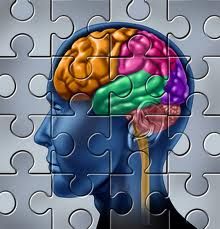

It's fall, leaves wafting down, winter in the air. I am at the barber, getting a haircut. My favorite shampoo guru, who’s about sixty, is explaining why she goes to the gym every morning.
“Because my mother used to tell me, you can die of being lazy.”
“Sounds like my mother," I say. "She always said, Haste makes waste." I can smell almond, which must be in the shampoo. "A picture is worth a thousand words," Minnie shoots back.
The two of us take turns firing adages like sharpshooters.
Beauty is in the eye of the beholder. Do as I say, not as I do. Stick to your guns. Stick to your knitting. It sticks to your ribs. Don’t be a stick-in-the-mud.
I run out of adages before Minnie does. Then to add insult to injury she reels off several more. It sounds like she could go on indefinitely.
She gets quiet. Then: “those old adages, you know, they gave us standards. They gave us something to live by.”
Cultural Memory
My shampoo guru is right. I am grateful for cultural memory, too.

We tend to think of memory as a function of our brain that snakes back and retrieves what happened to us in the past. To us. Each of us draws memories from our own personal wells. I can still feel in my wrist the homerun I hit in sixth grade.
But that kind of memory is fragile. Maybe I didn’t hit a homerun. Or maybe it happened in second grade. Maybe I just dreamed of hitting it. I’ve moved from Lincoln, Nebraska, where it happened, and there’s no one around to confirm my memory.
To document our lives, we save photos and compile scrap books. We write and read memoir.
We tend to forget that there is another kind of memory: shared memory. Think, for example, of what you learned in arithmetic class, what we know because of family legends, jokes, sacred texts, nursery rhymes, and adages.
Think of the information we exchange on playgrounds, first as children, then as parents.
Think of songs: "Blue Moon," "Rock of Ages," "Let It Be."
Cultural wisdom is often packaged, so that it will stick with us. We live by it. Thirty days hath September. A Good Man is Hard to Find. A Rabbi and a Priest and a Lawyer walk into a bar. Never give up. In the beginning God created the heavens and the earth. A fool and his money will soon part.

Cultural memory delivers us from our entirely private, idiosyncratic worlds. It offers us community, common knowledge, shared language.
The Staying Power Of Cultural Memory
Cultural memory is often engrained in us more deeply than—or at least, differently from-- our personal memories. It offers lifesavers to patients who are drowning in dementia. I have watched Alzheimer’s patients counting, their faces joyful at remembering. I have seen them watch baseball on TV, recognizing the diamond, thrilled by the crack of the bat. I have watched them cue up by habit, sitting down at tables to eat. I have heard them say the prayers they learned when they were children.
And what is most remarkable is how powerfully the songs stick. The Navy Hymn, Auld Lang Syne, Row Row Row Your Boat, America the Beautiful. I have heard patients requesting songs by name. I have heard patients who can barely talk, sing along, sometimes every word. I remember my mother at the age of 90 warbling along with us in church, even as she veered further in Alzheimer’s: "Amazing grace, how sweet the sound that saved a wretch like me! I once was lost, but now am found, was blind, but now I see."
Jeanne Murray Walker is the author of THE GEOGRAPHY OF MEMORY: A Pilgrimage Through Alzheimer’s, which tells the story of caring for her mother during her last decade.
Find GEOGRAPHY at: http://amzn.to/1kHNpgN
Jeanne's web site: www.JeanneMurrayWalker.com

